Hondurans to pick new president in vote that could end conservative rule
Hondurans headed to the polls on Sunday to pick a new president, with leftist candidate Xiomara Castro hoping to oust the right-wing National Party, whose 12-year rule has been beset by graft scandals, chronic unemployment and waves of fleeing migrants.
If she wins, Castro would become Honduras' first female president and her victory would mark the left's return to power for the first time since her husband former President Manuel Zelaya was deposed in a 2009 coup.
She has gained favor from voters for her efforts to consolidate opposition to outgoing President Juan Orlando Hernandez, who has denied accusations of having ties to powerful gangs, among other corruption scandals.
Recent polls have reinforced her status as favorite.
"We can't stay home. This is our moment. This is the moment to kick out the dictatorship," said Castro, mobbed by reporters just after voting in the town of Catacamas early on Sunday.
"It's now or never."
The candidate said she trusted that voters would report any problems they see and that international observers would also help to ensure a fair vote.
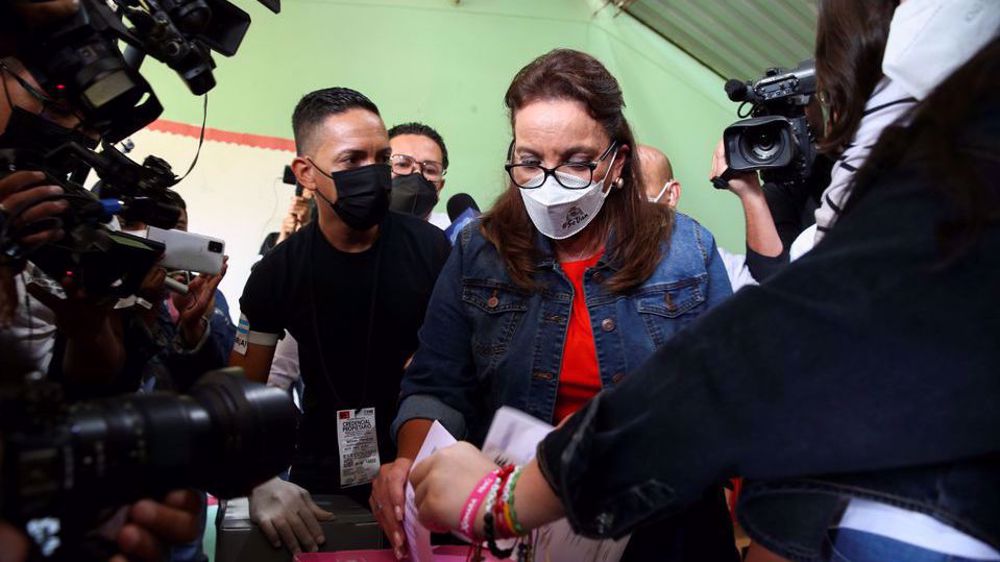
The election is the latest political flashpoint in Central America, a major source of US-bound migrants and key transit point for drug trafficking, and where concerns over increasingly authoritarian governments have grown.
Castro's main rival is the National Party's Nasry Asfura, a wealthy businessman and two-term mayor of the capital Tegucigalpa, who has tried to distance himself from the unpopular incumbent. He was expected to cast his ballot later in the capital.
In Tegucigalpa, as polling stations opened up on a cool, sunny day, dozens of people could be seen lined up early at multiple locations.
"I'm against all the corruption, poverty and drug-trafficking," said Jose Gonzalez, 27, a mechanic who was lined up outside his polling place and said he would cast his ballot for Castro, his young daughter standing next to him.
Polls close at 5 p.m., and preliminary results are expected three hours later. Some 5.2 million Hondurans are eligible to vote.
Hernandez's disputed 2017 re-election, and its ugly aftermath, looms large over Sunday's vote.
Widespread reports of irregularities provoked deadly protests claiming the lives of over two dozen people, but Hernandez's election win was ultimately rubber-stamped by allies on the electoral council.
Days later, it was vouched for by the government of then-US President Donald Trump.
Hard campaign
A large number of national and international election observers are set to monitor Sunday's voting, including an 80-person delegation from the Washington-based Organization of American States led by former Costa Rican President Luis Guillermo Solis.
"The voice of the Honduran people must be respected and the process must not lead to acts of violence," Solis told Reuters.
The pre-election tension was showing in some Tegucigalpa neighborhoods late Saturday, as some businesses boarded up storefront windows, and at least two auto dealerships located in an area near the president's offices had emptied their lots of cars. The neighborhood has been the scene of raucous protests in the past.
"The campaign has been very hard," said Julieta Castellanos, a sociologist and former dean of Honduras' National Autonomous University, especially after Castro in October sealed an opposition alliance with the 2017 runner-up that she said "generated big expectations."
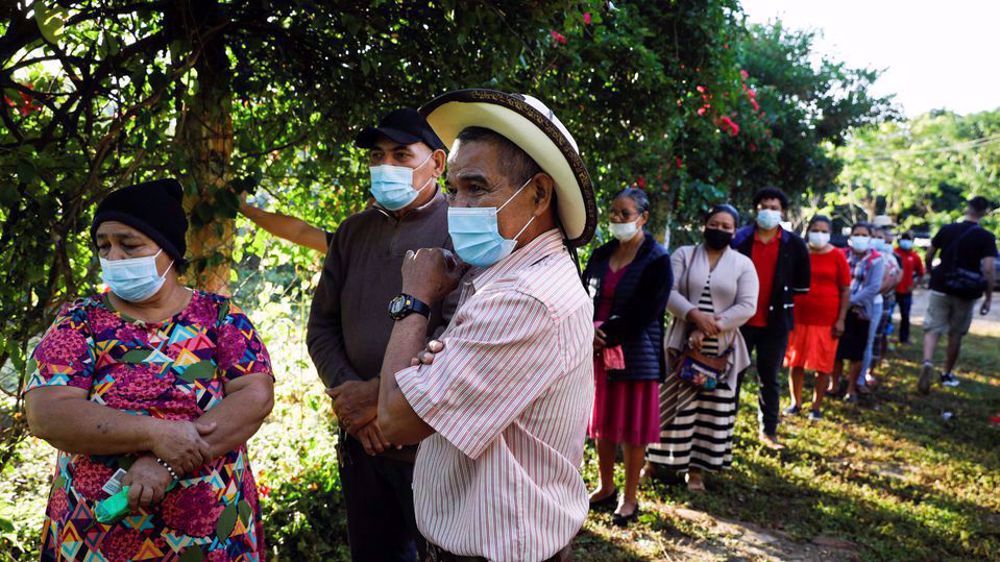
Castellanos said post-election violence is possible if the race is especially close, if a large number of complaints are lodged and give rise to suspicions of wide-scale fraud, or if candidates declare themselves victorious prematurely.
Political violence has already claimed more than 30 lives this year, including local candidates and activists across all major parties.
In addition to the presidential race, voters are also deciding the composition of the country's 128-member unicameral Congress, plus officials for some 300 local governments.
In Tegucigalpa's working-class Kennedy neighborhood, 56-year-old accountant Jose, who declined to give his surname, said he would stick with the ruling party.
"I have hope Tito Asfura can change everything," he said, using the mayor's nickname. "Look, here the corruption is in all the governments."
(Source: Reuters)
Leader: Iran has no proxy forces in West Asia
US fighter aircraft shot down ‘in friendly fire’ amid aggression on Yemen
Yemeni FM: Israel’s sponsors accountable for ongoing aggression on Sana’a
Eight Palestinians killed as Israel attacks Gaza school, hospitals
VIDEO | Rome, Milan host new protests in solidarity with Palestinians
Dec. 21: ‘Axis of Resistance’ operations against Israeli occupation
Spain jurists demand ties with Israel ties be cut
VIDEO | Press TV's news headlines


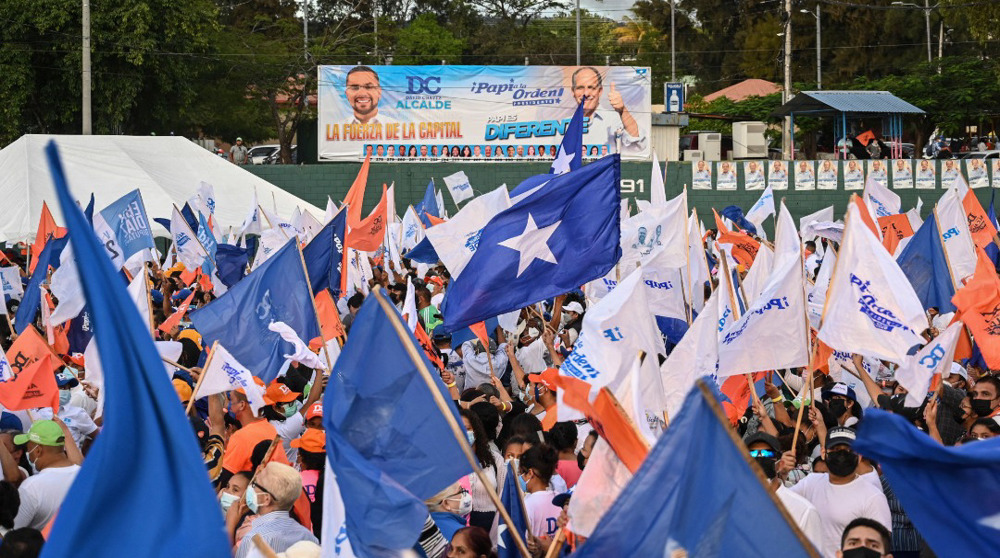
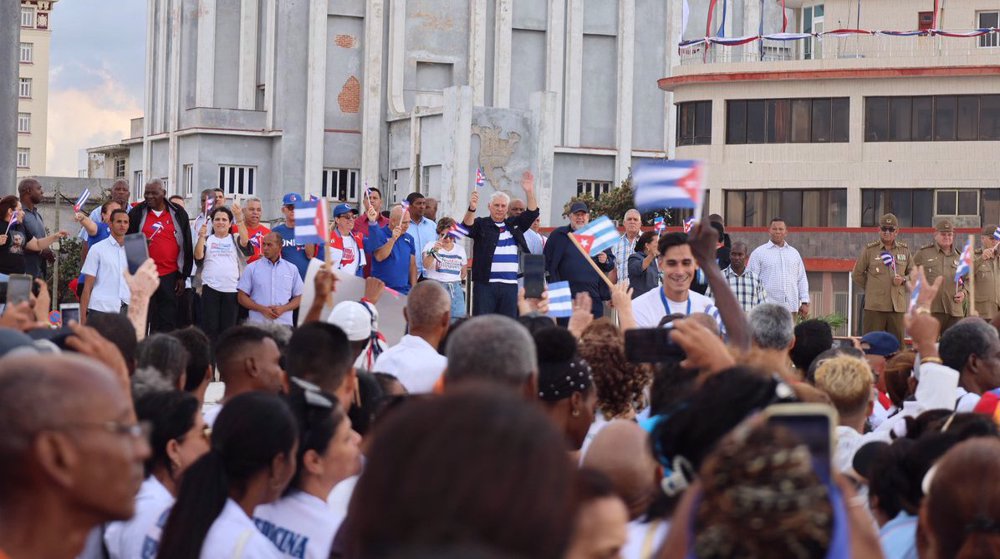
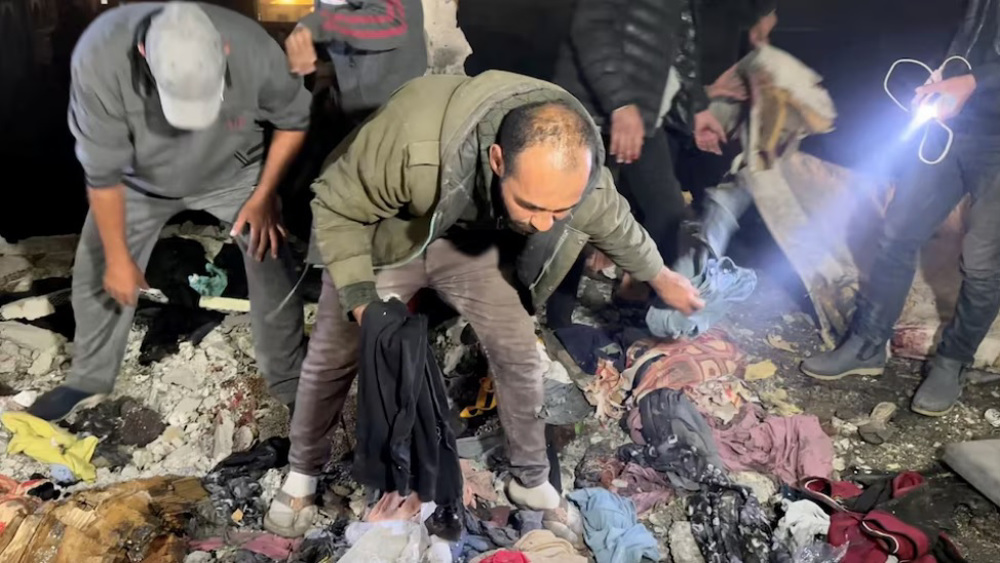





 This makes it easy to access the Press TV website
This makes it easy to access the Press TV website